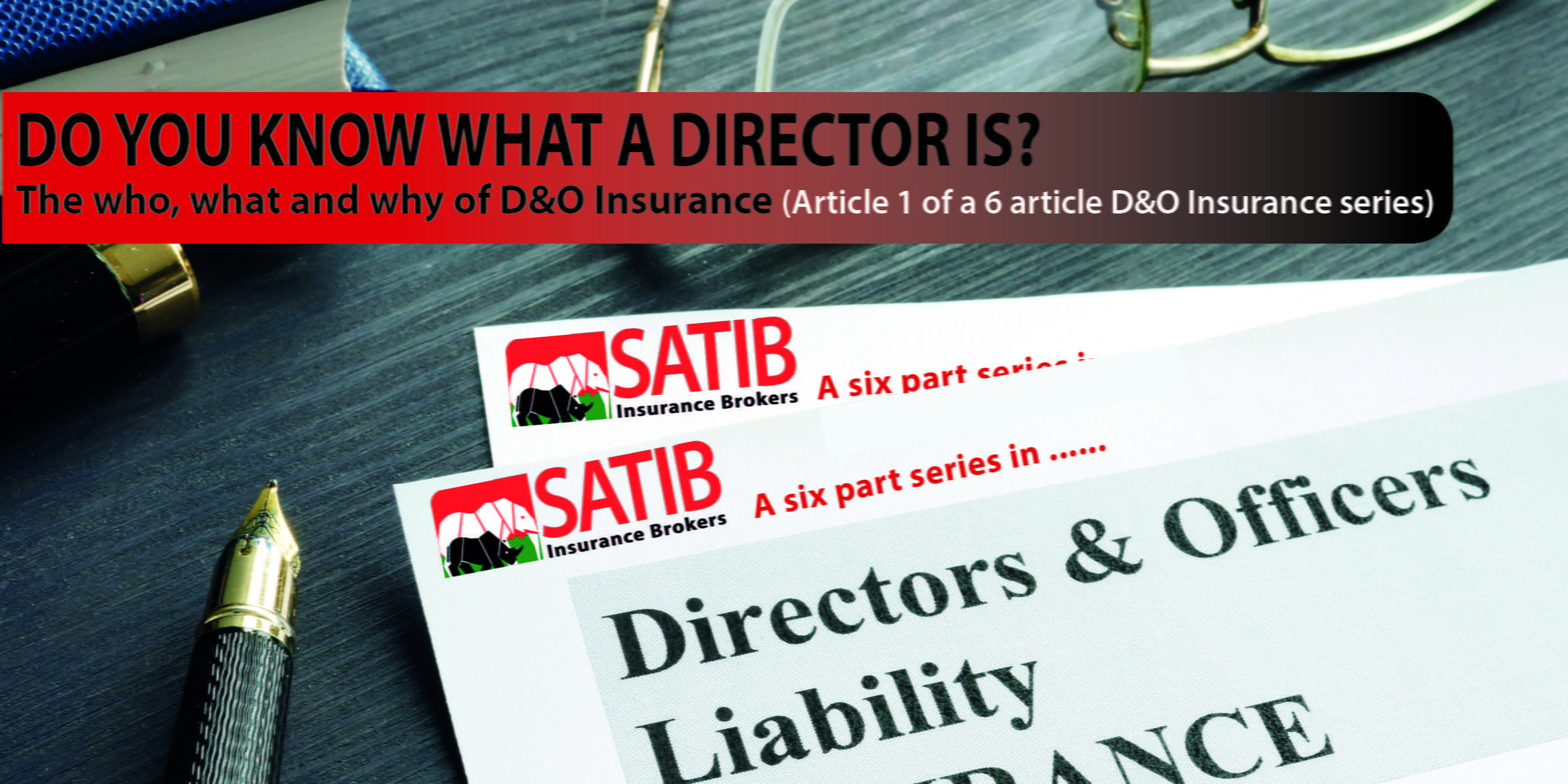
The WHO, WHAT and WHY of D&O Insurance (Article 1 of a 6 article D&O Insurance series)
Do you know what a director is?
Directors & Officers Liability insurance protects directors and officers if sued.
I think we all understand who falls under the definition of Directors, or do we? Directors are typically registered with CIPC (Companies & Intellectual Properties Commission) and would include members of a Close Corporation or Partnership, a sole Proprietor and a Trustee of a Trust. Liability, however, may also apply to Prescribed Officers.
A Prescribed Officer is a relatively new term and has caused much debate about who would be included. The Companies Act confirms that a Prescribed Officer is not necessarily a director, but rather anyone (regardless of a person’s title) who exercises general executive control and management of a significant portion of the activities of the company”.
A prescribed officer is therefore an employee who has a significant portfolio in the business. This all-encompassing definition could be used to describe any number of senior employees within a company.
The Act effectively thus assumes the fiduciary duties expected of directors (as explained in article 2 of this series) will apply equally to prescribed officers as well. This means they could have the same risk of liability for failure to comply with these duties and thus increases the level of exposure for senior employees within a company. They could be held jointly or individually liable for loss or damage suffered by the company, or other stakeholders, unless it can be shown that they have acted in good faith.
Whilst the above is just meant to stimulate awareness, it is the responsibility of those occupying senior positions within a company to educate themselves on what is expected in terms of the Act which will include prescribed offences and penalties. Senior management can no longer use as a defense that they were told to do it by a director. They must apply their mind and question whether their actions, or the actions of others that have come to their attention, are in the best interests of the company. Should they conclude that this is not the case, they will need to bring this to the board’s attention to ensure appropriate action.
In article 2 of the series, we will explore the duties and responsibilities of directors and officers.
Being a director is no longer just a prestigious title. It can have devasting effects if one doesn’t know how to mitigate and transfer risk.